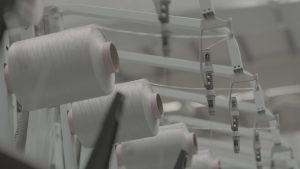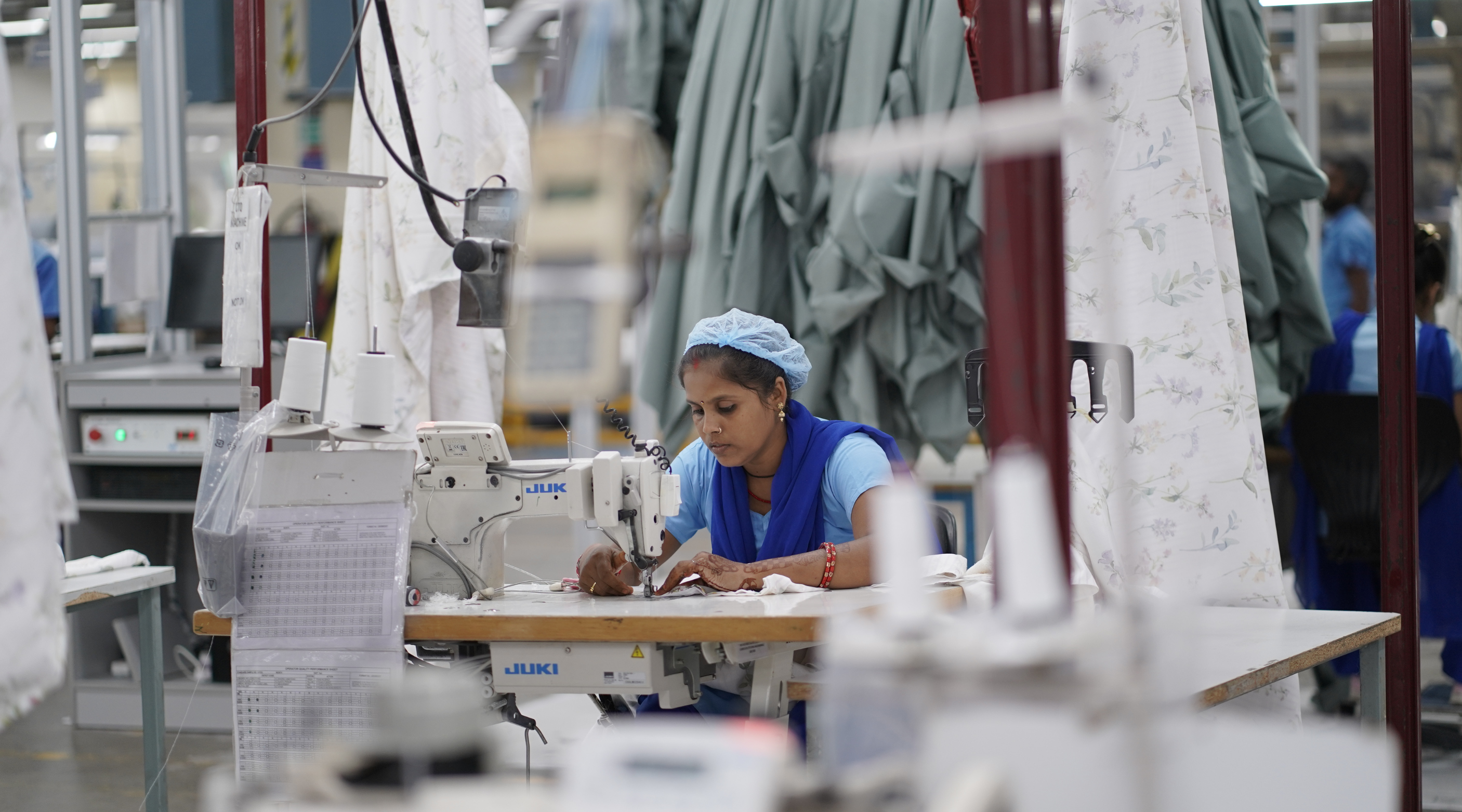Introducing Dipali Goenka, the trailblazing Managing Director and Chief Executive Officer of Welspun Living Limited (WLL), who has pioneered a paradigm shift towards sustainable business practices, seamlessly integrating Environmental, Social, and Governance (ESG) principles into the organisation’s fabric. Her bold initiatives, from harnessing renewable energy sources to implementing eco-friendly production processes, have not only reduced the company’s carbon footprint but also paved the way for a more sustainable future. In an exclusive conversation with ELLE India’s Editor, Ainee Nizami Ahmedi, Goenka articulates her vision of forging a legacy rooted in environmental stewardship, social responsibility, and ethical leadership.
Ainee Nizami Ahmedi (ANA): What inspired you to lead WLL’s transformation towards sustainability?

Dipali Goenka (DG): My inspiration stems from a deeply held belief in the power of businesses to drive positive change. I’ve prioritised fostering a culture of innovation and collaboration within the organisation, empowering our teams to identify and address challenges proactively. By embracing emerging technologies, forging strategic partnerships, and a culture of continuous improvement, we’ve been able to overcome obstacles and seize opportunities to drive meaningful change. It’s a journey that requires perseverance, vision, and a steadfast commitment to our core values.
ANA: What are the most pressing sustainability challenges facing the textile and home furnishing industry?
DG: One of the most pressing challenges is the environmental impact of textile manufacturing, including water consumption, chemical pollution, and carbon emissions. Addressing these challenges requires a holistic approach encompassing sustainable sourcing, responsible manufacturing practices, and product innovation. Additionally, ensuring social welfare throughout the supply chain, from raw material extraction to end-of-life disposal, remains a critical priority. As industry leaders, we must collaborate across sectors, leverage technology, and advocate for policy reforms to drive systemic change and create a more sustainable future for the textile and home furnishing industry.
ANA: Can you share some insights into your journey and how it has shaped your approach to leadership? You’ve spoken about starting at 30 to set an example for your daughters.

DG: My professional journey began humbly, with small, albeit passionate steps and a clear goal. I would commute to the factory every week to learn the intricacies of business while also managing my home and two young daughters. Through this process, I cultivated indispensable skills like time management, prioritisation, strategic acumen, and decisive thinking. I also completed the Owner/President Management Programme from Harvard University before taking the reins of Welspun’s home textiles division. My decision to embark on this journey at the age of 30 was driven by a desire to set an example for my daughters—to show them that they could achieve anything they set their minds to. I also have to give credit to my mother, a force of resilience and unwavering spirit, and my first glimpse into the power of impact. Her strength and grace under pressure instilled in me the drive to achieve and the desire to forge paths that weren’t laid out for me.
ANA: How has your leadership style evolved?
DG: My approach was initially characterised by hands-on involvement, strategic vision, and a focus on innovation. As the company expanded and diversified, I recognised the importance of delegation, empowerment, and building a solid team. I’ve learned to trust in the expertise and capabilities of my colleagues, fostering a culture of collaboration, accountability, and continuous learning. Today, my leadership style is defined by transparency and a commitment towards a sustainable future. Additionally, women’s empowerment has always been a priority for me. When I started my career at Welspun, we had about 7% female employees; I am proud to say that since then, the number of female employees has increased to more than 25%.
ANA: What are the top three things that motivate you to keep going, personally and professionally?

DG: I am deeply passionate about making a difference in the world, whether it’s through driving sustainability at WLL or empowering women in the industry. I find purpose in the work that I do, knowing that every decision I make has the potential to create positive change and leave a lasting impact. And, perhaps most importantly, I am inspired by the incredible people I work with— my colleagues, partners, and consumers—who share my vision and drive to build a better future together.
ANA: Your business accolades speak volumes. How does it feel to uphold such a rich legacy?
DG: For me, the title of ‘CEO with a soul’ is my biggest award. It is a recognition of our efforts to lead with integrity, empathy, and a deep sense of purpose, and a reminder that true success is measured in the positive difference we make in the world.
ANA: You focus a lot on technology and innovation–many would say you’ve always been ahead of the curve.
DG: Our approach towards innovation is influenced by our consumers, especially the tech-savvy and environmentally conscious generation of millennials who actively seek brands that align with their values. Wel-Trak, our blockchain-enabled technology, ensures complete traceability and promotes responsible practices at every supply chain step. This process ensures that consumers can trace the provenance of the cotton raw materials throughout the supply chain from the farm to the retail shelf. Additionally, we emphasise innovation in all our processes and products, integrating advanced automation and robotics in our production processes to increase efficiency and reduce costs.
ANA: How do you view inclusivity at work?
DG: Inclusivity at work is not just a value we uphold but a fundamental principle. It goes beyond policies—creating tangible opportunities for all individuals to thrive. For example, our facility in Anjar (in Gujarat) is led by a team of women, reflecting our commitment to empowering women in leadership roles. We’ve also launched initiatives like SPUN and other corporate social responsibility efforts to broaden opportunities for women in the region, enabling them to achieve financial independence from the convenience of their homes. In addition to empowering women, we are committed to inclusivity in our workforce. I believe that diversity or inclusivity does not stop at women empowerment alone. Inclusivity has a lot to do with how the company embraces this concept, and how we are sensitised to different communities.
ANA: What is that one piece of advice that you’d like to give to young female leaders?
DG: To young women aspiring to leadership roles, my advice is to embrace resilience, seek out mentorship, and continuously cultivate your skills and knowledge. Leadership is not just about guiding others; it’s about inspiring them with your actions and decisions. Surround yourself with individuals who challenge you to grow and who support your journey. Embrace every learning opportunity, whether through formal education, practical experiences, or insightful conversations with mentors.
Read the full story on ELLE India’s new issue, or download your digital copy via Magzter.























